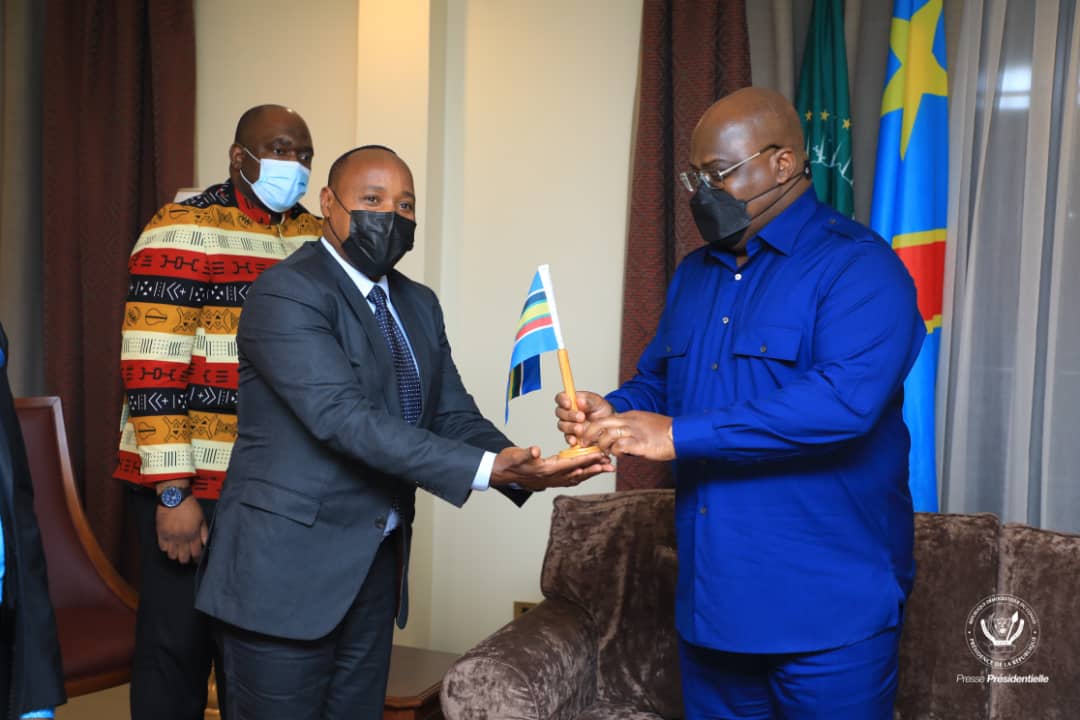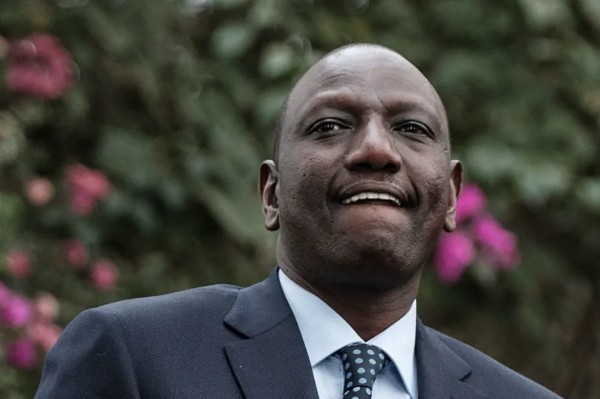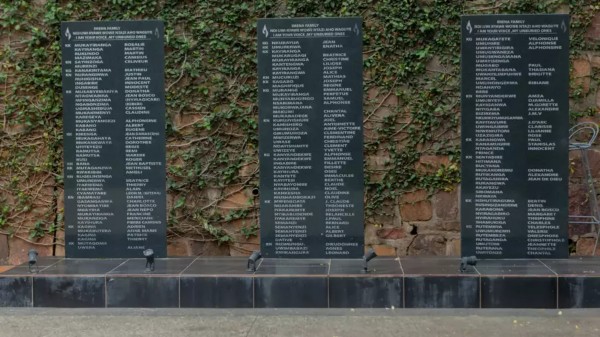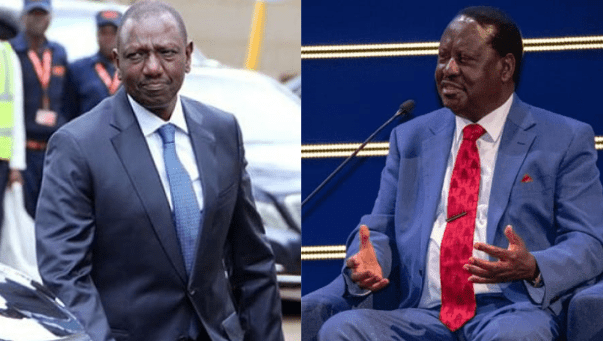Regional
UN mission in DRC admits failure to protect civilians
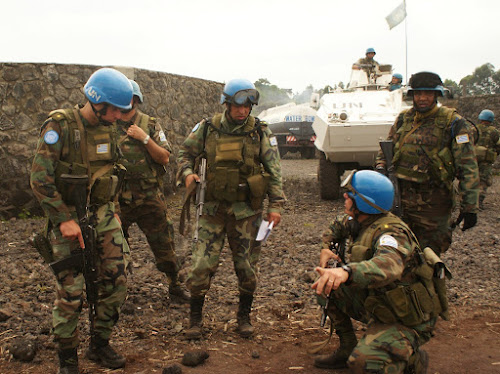
The
UN mission in the Democratic Republic of Congo (DRC), MONUSCO, on Wednesday,
March 23, admitted that the security situation in the country has not improved
despite it being on ground since 2010 with more than 17,000 peacekeeping
troops.
"As
you know, the security situation is not improving. Do not hide, it even tends
to deteriorate depending on the area. And if we take from north to south in a
somewhat caricatural way to go fast, we have CODECO in the north who have
evolved a little in their objectives and who, as you know, have been attacking
the camps for displaced people for a few weeks," Maj Gen Benoît Chavanat,
the MONUSCO Deputy Commander, told a press conference in Kinshasa.
Chavanat was addressing the press conference
virtually from the eastern DRC city of Goma.
Once
a peaceful agricultural cooperative, before eventually transforming into an
armed rebel movement, CODECO is a loose association of various Lendu militia
groups operating in DRC.
"You
obviously have the ADF [Allied Democratic Forces] which is being vigorously
fought by the Ugandan armies in connection with the FARDC (Congolese army) and
which continue to commit atrocities here and there," he added.
Originally
based in western Uganda but has expanded into the neighboring DRC, the ADF is
an Islamist rebel group in Uganda and the DRC, considered a terrorist
organization by the Ugandan government.
A
soldier and 11 civilians were killed in a rebel attack in DRC's troubled
northeasterly province of Ituri, hospital sources and local authorities said on
March 24.
"We
have received 11 bodies of civilian victims of a massacre in the Lopa region at
Djugu. There was also the body of one soldier," John Katabuka, director of
the main regional hospital, told AFP.
"Codeco
militants attacked the village of Tshotsho Wednesday night into Thursday
morning. They killed 11 civilians with machetes and guns -- a woman and elderly
people," local official Gedeon Dino told AFP
There
is also the "M23" of which we feel some signs of renewed activity
especially against the FARDC directly but indirectly on civilians. And you have
further south, of course, the Mayi-Mayi who are attacking communities (...) in
the Highlands."
In
addition to the attacks on displacement sites since last December, the French
general reported "the employment of a number of minors, children
therefore, by certain armed groups in the DRC who use minor children, child
soldiers to increase the numbers."
The
French general acknowledged that it is a situation the UN mission has known for
a long time but did little or nothing about. He said this is a situation
"that we have known for a long time but which tends to persist. I'll just
give you an example in Beni, young ADF cadres who were 15 years old with their
guns were apprehended by the FARDC in Kamango.”
In
its Resolution 2556 (2020), the Security Council decided to extend for one
year, until December 2021, the mandate of MONUSCO and also approved its gradual
exit strategy. The UN mission was to keep a maximum authorized strength of 14,000
military personnel, 660 military observers and staff officers, 591 police
officers and 1,050 members of the formed police units. At the time, the Council
approved the deployment, on a temporary basis, of an additional 360 members of
the formed police units, to replace the military personnel.
The
Council had assigned two “strategic priorities” to the Mission: civilians’
protection; and support for the stabilization, the strengthening of public
institutions and the major governance and security reforms.
The
UN mission’s approved budget for the financial year 2021/2022 alone was
$1,123,346,000.
However,
United Nations peacekeepers continuously failed to intervene to stop militia
attack that killed hundreds of civilians in the country, and often blamed Congolese
forces for inaction.
In
numerous instances, UN peacekeepers left civilians to be slaughtered even
though they got desperate calls for help when the attacks began.
Reports
have shown how UN peacekeepers provide a false sense of security by not responding
when local communities ring the alarm bells.
Since
the end of November, the DRC has authorized the entry of Ugandan troops into
the provinces of North Kivu and Ituri for joint operations against the ADF, an
armed group of Ugandan origin that pledged allegiance to Daesh since 2019.
The
Islamic State (IS), at times known as the Islamic State of Iraq and the Levant
(ISIL) or the Islamic State of Iraq and Syria (ISIS) and also referred to by
its Arabic-language acronym Daesh, is an Islamist militant jihadist group and
former unrecognized quasi-state that follows a Salafi jihadist doctrine.
About
two years ago, the United Nations peacekeeping mission closed nine field
offices following the peaceful transfer of power in the 2018 presidential
elections. A new strategy for the operation’s eventual closure was discussed at
the highest levels.
Kishasa
wants the peacekeepers out but there are no guarantees they will exit soon.
The
drawdown and ultimate withdrawal of MONUSCO figured prominently in UN discussions
with the government in Kinshasa, as noted by Leila Zerrougui, Special
Representative of the Secretary-General and Head of MONUSCO, in her briefing on
the Secretary-General’s report on the Mission (document S/2020/1150). The
result of the discussions was the joint strategy, shared with the Security
Council by the Secretary-General on October 26, 2020, she said, adding that it
represented a common vision for the Mission’s gradual, responsible and
sustainable drawdown and exit.
By
June 2021, MONUSCO would withdraw completely from the Kasaïs, and by June 2022,
it will also be able to withdraw from Tanganyika, should stabilization persist.
In
October 2021, the representative of the DRC reiterated his request to the
Council to lift restrictions on the import of military supplies and enable the
State to enhance its capacity to combat armed groups. Kinshasa also called for severe and exemplary
punishment against criminal groups or multinationals who support armed groups
through the illegal exploitation of minerals.
However,
the Security Council in December 2021 decided to extend the mandate of the UN
mission in DRC, alongside its Force Intervention Brigade, until December 20,
2022, and welcomed Congolese President Felix Tshisekedi’s efforts in the
political and human rights arenas and demanding that all armed groups
immediately cease all forms of violence and other destabilizing activities.
Unanimously
adopting resolution 2612 (2021) under Chapter VII of the UN Charter, the
Council further decided that MONUSCO’s troop ceiling will comprise 13,500
military personnel, 660 military observers and staff officers, 591 police and
1,050 formed police units.


